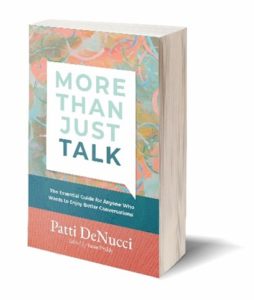Ever wonder what separates average networkers from those who become trusted must-have connections – your “Twenty-Percenters”, as I refer to them in my presentations? Here are 5 key steps. (Warning: they are surprisingly simple, but they are not easy. It takes hard work and diligence to do them well and consistently.)

- Pay attention to – and do – the little things. Return phone calls. Show up on time. Be polite and gracious. Have and demonstrate integrity. Walk your talk. Do the right thing even when it’s difficult. Don’t spew out unwanted sales pitches. Don’t spam or overload others with information prematurely. Ask permission before you add people to your e-lists. Listen.
- Do Step 1 consistently and over time. Not just when it’s convenient.
- Provide that extra level of attention, class, generosity, and follow up. Let people know how much you appreciate them. Call them by name. Comment on their blogs and articles. Retweet their tweets. Like their Facebook pages. Review their books or products. Quote them (and give them credit.)Stay in touch. Show gratitude. Offer value. Do what makes them smile, laugh, and feel special and important. Keep your promises. Make their day. Make them look good.
- Become known as a provider of reliable information, insights, connections and resources. Think before you connect or refer. Be discerning and thoughtful. Stay up to date on what’s happening in your industry and the world. Be a lifelong learner. Offer thoughtful ideas and advice. Double check your facts and sources. Surround yourself with great people and share these connections wisely and respectfully. Demand and exhibit excellence.
- Repeat Steps 1 through 4 regularly.
Again, it’s not as easy at it looks. But if it was easy everyone would do it, then, wouldn’t they?
What would you add to this list? How do you earn or seek networking loyalty? What makes some connections more valuable to you than others? What makes someone a Must-Have Connection? Or not?
———————————————



Patti:
I love, love, love this post. So simple, yet so LOADED with sage advice. Thank you for being a “breathe of fresh air” on the topic of networking!
Terri
Thank you Terri!
notice how patti doesn’t include SELLING in 1 through 4?
if you do what patti says, that takes care of itself…
Todd and Cindy, I appreciate and agree with your additions to the list. Thanks for sharing your perspectives and expertise.
Patti, great list! Thank you! What I would add is to genuinly care about others for who they are, not for where they can get you. I’d also add to be patient with people. In other words, withhold judgment. The way someone is behaving on a given day may be a result of something that is going on in their lives that isn’t visible to others and that causes them to behave in a way they would not in the normal course of their daily life. Thanks again for the thought-provoking post!
Hi Patti,
Thanks for reiterating the best practices of effective networking. Your blog has rekindled my long-cherished dream of connecting to the folks that I know.
I wonder if there’s any difference between “personal networking” and “business networking”. In business-related networking one’s goals may be customer-retention or gaining insight about competition, etc. — that is, there seems to be a motive. In personal networking, is it more effective when one does not have a hidden agenda or return-expectation?! OR, is there no difference at all between the two types of networking?!
Just like the debate about “leaders are born vs. made”, could it be that “effective networking happens when it comes naturally rather than when one makes a conscious attempt to do so.”
Is networking something that we typically do out of a “necessity”? OR is it typically a “self-less activity”?
Would you say that “networking” helps us in achieving all five needs depicted in the Maslow’s hierarchy of needs?!
So many questions…but one thing is clear, ‘effective networking’ is a necessary trait for leading a happy life and for being successful.
Thanks,
Viswa
Viswa, thank you for your kind and very insightful comments and thought provoking questions. Reason to reflect on how and why we desire connections and to what degree and to what end.